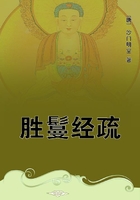Its influence was no less powerful in the question on what principle should be based the future ownership exercised by the peasants. Two schemes, widely differing from each other, were at the same time proposed by the press. The one (chiefly supported by economists such as Vernadsky, and publicists like Katkof)recommended the immediate acceptance of measures favourable to the development of private property; the other (supported by the majority of the Slavophile and Radical press) was in favour of the strict maintenance of the village community system, with its periodical redistribution of land. On this question, Slavophiles such as Samarin and Koschelev went hand in hand with the Socialist Tchernishevsky, the author of the very remarkable essay on the "Prejudices of Political Economists against the Common Ownership in Land," an essay which forms the base of the social creed of the so-called Nihilists.
The project of emancipation elaborated by Government officials is a sort of compromise between these contradictory opinions. It starts with the idea of a temporary maintenance of the common ownership in land, but advocates certain measures favourable to the development of private property. A new redistribution of the shares is allowed only when it is demanded by two-thirds of the persons voting at the village Assembly.
Every person paying back to the Government the money advanced to him, in order to remunerate the landlord for the ground he has been obliged to yield, is immediately acknowledged to be the private proprietor of his share. The scheme of the Slavophiles and the Radicals required a simple majority to make legal the village decision concerning a new re-distribution of the land;they were, and are still, opposed to the recognition of private property on the part of the peasant who has bought back his share in the common land.
Very important, too, was the service rendered by the press on the important question of the amount of land which the feudal lord should be required to leave in the hands of his liberated serfs. Most writers were in favour of leaving to the peasants the quantity of land they actually occupied; "for," said they, and not without reason, "this amount must, no doubt, correspond to the necessities of their existence, as the amount has been accorded to them by the landlord for no other purpose but that of merely supporting life." Few advocated the desirability of establishing in each province a certain maximum and minimum of land donation. The members of the central committee were favourable to the first scheme; and if the last prevailed, and found its expression in the law, the explanation is to be found in the opposition which the first plan met with on the part of the nobility and their chief supporters in the higher official circles.
One important question arose, whether the landlord should still keep a certain executive authority within the limits of the township; or whether the inner life of the village was thenceforth to be subject to no other rules than those issued by the village Assembly and put in force by its elected chiefs, the elders or starostas. The press almost unanimously expressed its desire to see the realisation of the latter plan. The country people, said the press, required complete liberty, or, to use the popular expression, "pure liberty." Now this liberty was inconsistent with the maintenance of rights such as those exercised by the German noblemen in the Baltic provinces or the junkers of Eastern Prussia. The only way to render any revival of personal servitude impossible was to establish the system of peasant self-government. Opinions differed on the question as to whether the landlord ought to be a member of the township or not.
The Radicals were against it, and the Slavophiles did not attach great importance to it, thinking that the landlord would feel himself quite isolated amid the crowd of his former subjects. The Liberals alone were favourable to the idea of increasing the number of township members by admitting all residents, without distinction of class, to vote in the village Assembly. Their advice did not prevail, and the commune became a class institution, to the great disadvantage both of the peasants and of the whole State.
One of the most difficult points was undoubtedly that of fixing the amount of remuneration which the landlord ought to receive, not for the loss of his right over the person of his former serf, but for that of the land he was obliged to cede in his favour. The question was the more difficult because the land, in more than one part of Russia, had really no market price at all, the nobility and gentry being alone allowed to bid for it.
The press, reasonably enough, insisted on the necessity of establishing a correspondence between the revenue the peasant got from his share and the amount of remuneration paid for it to the landlord. But such was not the opinion, either of the central or local committees; and we must lay on their shoulders the responsibility of the fact, that it was the amount of payments in kind and the quantity of villein-service performed by the peasant, which were selected as the base of valuation. This certainly was against the interests of the peasant, highly overcharged as he was by the manorial lord, who obliged him to pay rents much surpassing the revenue of the land he cultivated.
By not adopting on this point the views entertained by the press, the reformers, as you easily see, did a great social injustice.















